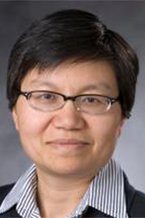
Feeling lonely can lead to sleepless nights for middle-aged and older adults.
In a study of 9,430 adults aged 50 and older, researchers from the New York University Rory Meyers College of Nursing and Duke University School of Nursing found a significant link between loneliness and insomnia symptoms, such as difficulty falling and staying asleep, waking up too early in the morning, and nonrestorative sleep.
Loneliness, according to researchers, can spark insomnia symptoms through various pathways, among them increased stress, anxiety, and heightened vigilance. Addressing loneliness could be key to better sleep and healthier aging.
The research team analyzed data from the Health and Retirement Study, a nationally representative survey of middle-aged and older adults in the United States.
Their results showed 16% of the sampled adults developed at least one insomnia symptom over a six-year period. A lack of sleep is known to raise the risk for cardiovascular disease and memory problems.
The study was published in the July issue of Psychiatry Research.
To measure social isolation and loneliness, researchers used Steptoe’s Social Isolation Index and the revised UCLA Loneliness Scale. The 20-item scale gauges how well statements like “I feel left out,” and “I have nobody to talk to,” apply to their lives.

Senior study author Bei Wu, PhD, emphasized the distinction between social isolation and loneliness, explaining that the latter is linked with subjective perceptions.
“Loneliness represents a perceived discrepancy between one’s actual and desired social relationships,” said Wu, who is Dean’s Professor of Global Health at NYU Nursing and a consulting professor in the Department of Medicine and the School of Nursing at Duke. “In our study, loneliness was linked with sleep problems, while social isolation wasn’t after we adjusted for health indicators.”
Wu points out that, as people grow older, they are more likely to experience social isolation and feelings of loneliness.
“At middle age we still have work that connects us and we’re mobile so we can travel easily,” she explains.
“But as we age our social network starts shrinking. Loss of family, loss of friends, loss of spouse and also our work position can disappear. Adults may have less mobility to engage in community events or get together with friends for lunch, dinner, etc. So, all these things certainly raise the risk for loneliness and social isolation among older adults.”
How to feel less lonely
Wu, a senior fellow in the Duke Center for the Study of Aging and Human Development and the co-director of the NYU Aging Incubator, is collaborating with colleagues at Duke School of Medicine on projects to improve oral health among older adults with mild dementia and address cognitive health among Chinese American older adults.
Her publication during the early stages of the COVID-19 outbreak about social isolation of older adults launched new explorations about aging for her and her colleagues, particularly in relation to sleep quality.
The 2020 paper may have stemmed from the global crisis, but it highlighted a persistent issue of social isolation that continues to impact people of all ages long after the pandemic has ended. Earlier this year, the U.S. Surgeon General sounded the alarm about the harms of social isolation.
The connection between loneliness and sleep problems is a complex issue. One theory suggests that humans are hardwired to feel vulnerable when they perceive their environment as unsafe — a common feeling among those who are lonely. This could lead to an unconscious vigilance that disrupts sleep.
A simpler concept is loneliness may make it more difficult for people to cope with stresses of everyday life, which can lead to insomnia symptoms.
“We’re born to be socially connected and emotionally connected,” Wu said. “Our relationships support our well-being.”
Staying connected could help older adults avoid insomnia, and researchers say social activities, such as volunteering or joining a club; participating in support groups for those who are grieving or have a chronic health condition; or technology-based interventions, such as video chat — or even companion robots — can help.
Additional authors include the study’s first author Xiang Qi, PhD; Susan K. Malone, PhD; and Yaolin Pei, all of NYU; and Zheng Zhu of NYU and Fudan University School of Nursing, Shanghai, China.
The study was partially funded by the National Institutes of Health (P30AG059304, P50MD017356).